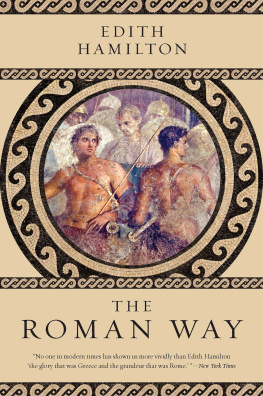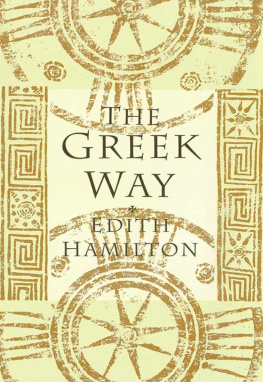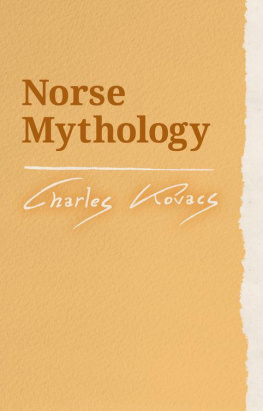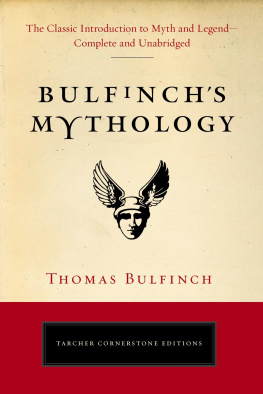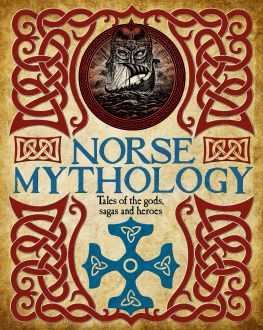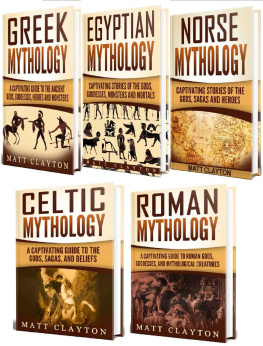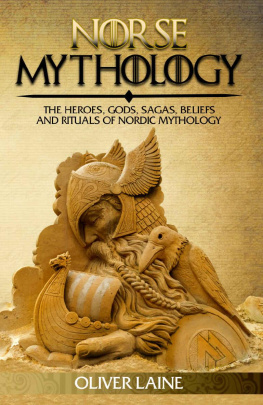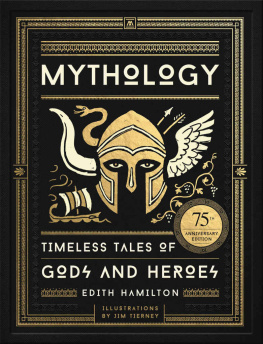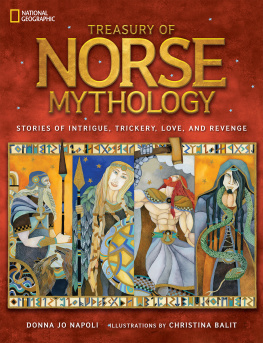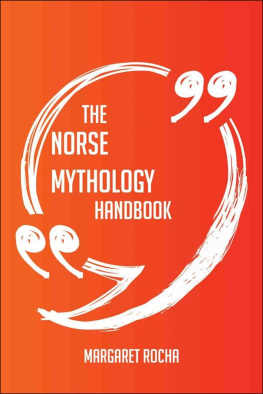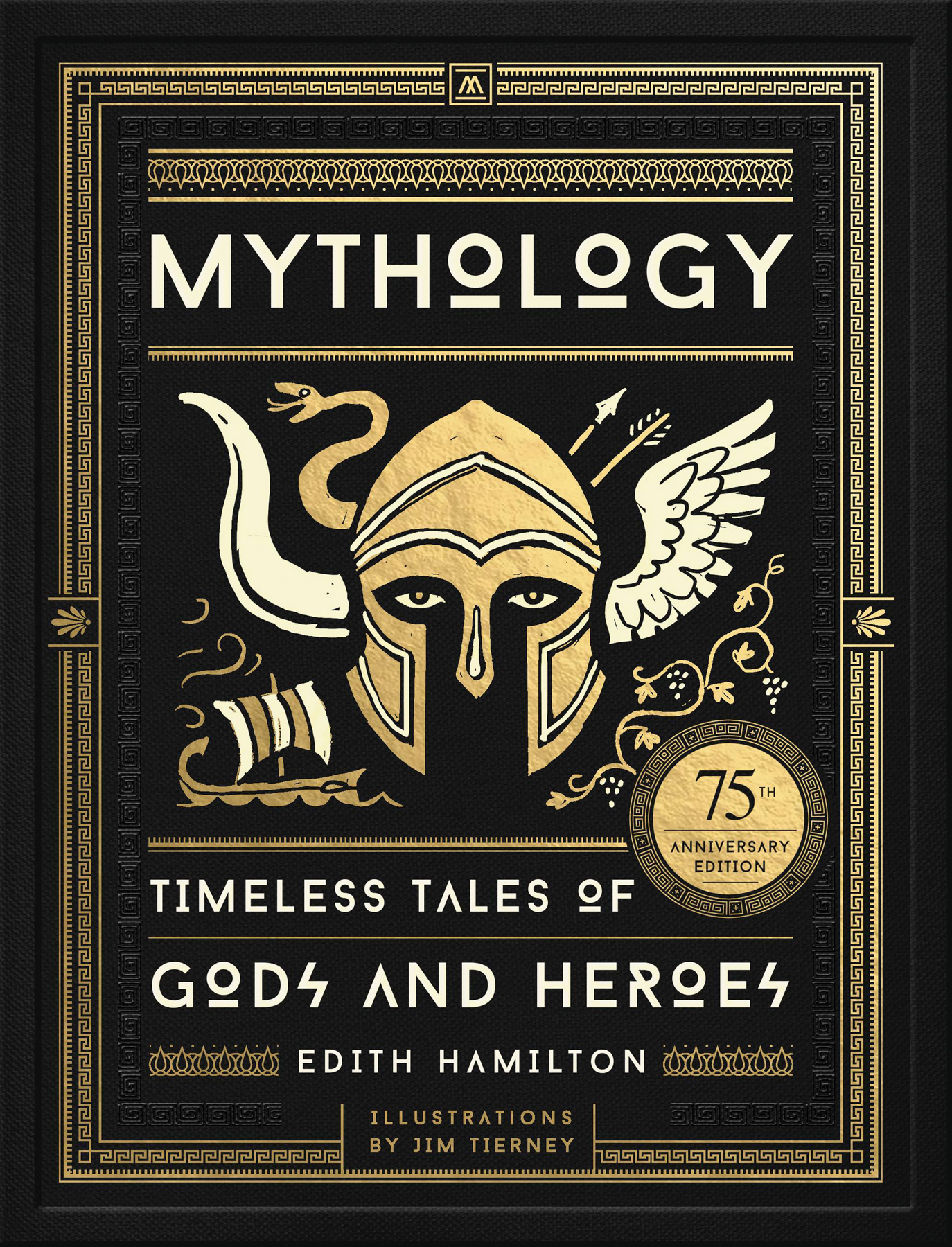Thank you for buying this ebook, published by HachetteDigital.
To receive special offers, bonus content, and news about ourlatest ebooks and apps, sign up for our newsletters.
Copyright 1942 by Edith Hamilton
Copyright renewed 1969 by Dorian Fielding Reid and Doris Fielding Reid
Cover design by HEADCASE DESIGN
Illustrations by JIM TIERNEY
Cover copyright 2017 by Hachette Book Group, Inc.
Hachette Book Group supports the right to free expression and the value of copyright. The purpose of copyright is to encourage writers and artists to produce the creative works that enrich our culture.
The scanning, uploading, and distribution of this book without permission is a theft of the authors intellectual property. If you would like permission to use material from the book (other than for review purposes), please contact permissions@hbgusa.com. Thank you for your support of the authors rights.
BLACK DOG & LEVENTHAL PUBLISHERS
Hachette Book Group
1290 Avenue of the Americas
New York, NY 10104
www.hachettebookgroup.com
www.blackdogandleventhal.com
Originally published in hardcover by Little, Brown and Company, 1942
Reissued: March 2013
Anniversary edition: September 2017
Black Dog & Leventhal Publishers is an imprint of Hachette Books, a division of Hachette Book Group. The Black Dog & Leventhal Publishers name and logo are trademarks of Hachette Book Group, Inc.
The publisher is not responsible for websites (or their content) that are not owned by the publisher.
The Hachette Speakers Bureau provides a wide range of authors for speaking events. To find out more, go to www.HachetteSpeakersBureau.com or call (866) 376-6591.
Illustrations by JIM TIERNEY
ISBNs: 978-0-316-43852-0 (hardcover); 978-0-316-43853-7 (ebook)
E3-20170727-JV-PC
A book on Mythology must draw from widely different sources. Twelve hundred years separate the first writers through whom the myths have come down to us from the last, and there are stories as unlike each other as Cinderella and King Lear. To bring them all together in one volume is really somewhat comparable to doing the same for the stories of English literature from Chaucer to the ballads, through Shakespeare and Marlowe and Swift and Defoe and Dryden and Pope and so on, ending with, say, Tennyson and Browning, or even, to make the comparison truer, Kipling and Galsworthy. The English collection would be bigger, but it would not contain more dissimilar material. In point of fact, Chaucer is more like Galsworthy and the ballads like Kipling than Homer is like Lucian or Aeschylus like Ovid.
Faced with this problem, I determined at the outset to dismiss any idea of unifying the tales. That would have meant either writing King Lear, so to speak, down to the level of Cinderellathe vice versa procedure being obviously not possibleor else telling in my own way stories which were in no sense mine and had been told by great writers in ways they thought suited their subjects. I do not mean, of course, that a great writers style can be reproduced or that I should dream of attempting such a feat. My aim has been nothing more ambitious than to keep distinct for the reader the very different writers from whom our knowledge of the myths comes. For example, Hesiod is a notably simple writer and devout; he is nave, even childish, sometimes crude, always full of piety. Many of the stories in this book are told only by him. Side by side with them are stories told only by Ovid, subtle, polished, artificial, self-conscious, and the complete skeptic. My effort has been to make the reader see some difference between writers who were so different. After all, when one takes up a book like this, one does not ask how entertainingly the author has retold the stories, but how close he has brought the reader to the original.
My hope is that those who do not know the classics will gain in this way not only a knowledge of the myths, but some little idea of what the writers were like who told themwho have been proved, by two thousand years and more, to be immortal.
Of old the Hellenic race was marked off from the barbarian as more keen-witted and more free from nonsense.
H ERODOTUS I: 60.
G reek and Roman mythology is quite generally supposed to show us the way the human race thought and felt untold ages ago. Through it, according to this view, we can retrace the path from civilized man who lives so far from nature, to man who lived in close companionship with nature; and the real interest of the myths is that they lead us back to a time when the world was young and people had a connection with the earth, with trees and seas and flowers and hills, unlike anything we ourselves can feel. When the stories were being shaped, we are given to understand, little distinction had as yet been made between the real and the unreal. The imagination was vividly alive and not checked by the reason, so that anyone in the woods might see through the trees a fleeing nymph, or bending over a clear pool to drink, behold in the depths a naiads face.
The prospect of traveling back to this delightful state of things is held out by nearly every writer who touches upon classical mythology, above all by the poets. In that infinitely remote time primitive man could
Have sight of Proteus rising from the sea;
Or hear old Triton blow his wreathd horn.
And we for a moment can catch, through the myths he made, a glimpse of that strangely and beautifully animated world.
But a very brief consideration of the ways of uncivilized peoples everywhere and in all ages is enough to prick that romantic bubble. Nothing is clearer than the fact that primitive man, whether in New Guinea today or eons ago in the prehistoric wilderness, is not and never has been a creature who peoples his world with bright fancies and lovely visions. Horrors lurked in the primeval forest, not nymphs and naiads. Terror lived there, with its close attendant, Magic, and its most common defense, Human Sacrifice. Mankinds chief hope of escaping the wrath of whatever divinities were then abroad lay in some magical rite, senseless but powerful, or in some offering made at the cost of pain and grief.
This dark picture is worlds apart from the stories of classical mythology. The study of the way early man looked at his surroundings does not get much help from the Greeks. How briefly the anthropologists treat the Greek myths is noteworthy.
Of course the Greeks too had their roots in the primeval slime. Of course they too once lived a savage life, ugly and brutal. But what the myths show is how high they had risen above the ancient filth and fierceness by the time we have any knowledge of them. Only a few traces of that time are to be found in the stories.
We do not know when these stories were first told in their present shape; but whenever it was, primitive life had been left far behind. The myths as we have them are the creation of great poets. The first written record of Greece is the


